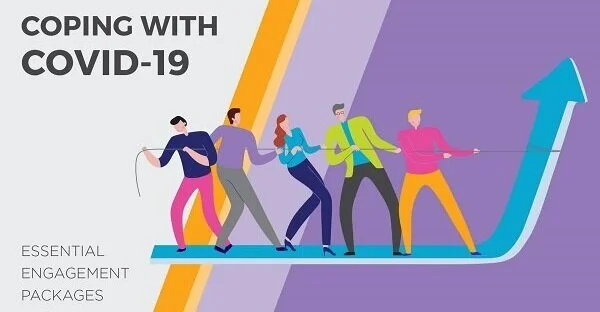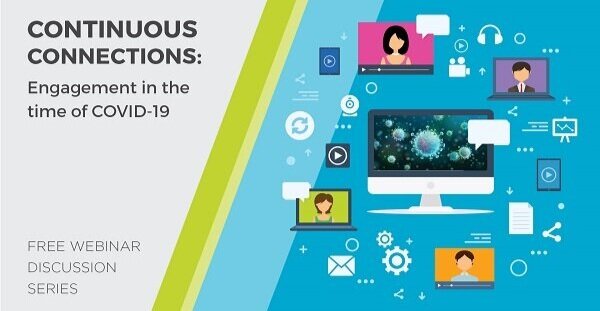As Australia grapples with increasing polarisation, engagement processes face new challenges. Declining public trust, contested narratives, and diverging values can make even well-intentioned dialogue feel risky. Explore the do’s and don’ts of navigating polarisation to foster genuine, constructive conversations in contested and divided environments — and discover how to create space for honest, inclusive engagement that moves beyond entrenched positions.
CONFLICT AHEAD? 3 BIGGEST MISTAKES AND WHAT TO DO INSTEAD
Conflict - generally feared and constantly mismanaged, it’s one of the biggest challenges you will face in engagement. It’s also the most common challenge our subscribers submit to us. If you anticipate conflict, outrage or emotion ahead, this article is for you. Inside - how to avoid the three biggest errors we see made (and they are made a lot) and some simple, yet effective things you can do instead to navigate the situation instead of making it worse.
HOW TO HAVE MEANINGFUL, EVERYDAY CONVERSATIONS AROUND DISTRESSING EVENTS
Fires, floods, a pandemic, wars and economic stress – humans everywhere are living through or witnessing a multitude of distressing events at once. It’s a time to connect with and support each other, even if we fear emotionally charged topics or feel uncertain how to approach them. Here are nine skills you can use in everyday conversations with family, friends and colleagues to help you and them process these events, bear heavy emotions and move forward together.
BALANCING COST, RISK & BEST-PRACTICE THROUGH A TROUBLED TIME
It takes time, effort and resources to achieve best practice engagement at the best of times. And right now it’s not the best of times. We’re hearing from many that engaging at all (let alone engaging well) is difficult.
Your organisation may be grappling with how to respond to the crisis, facing reduced revenue and budget cuts, responding to increased demand for community support and services, and wondering how to sustain it all long term. Local government bodies are also working to comply with the enhanced engagement requirements set out in the Local Government Act.
So we’ve announced two new service options designed to help you engage robustly, cost-effectively and appropriately.
REGISTER FOR SESSION #3: THE ‘COLLECTIVE’ ONLINE EXPERIENCE
How do we really ‘hear’ each other and have a collective experience when we engage online? Register now for the third session in our popular, new ‘continuous connections’ webinar discussion series.
Grab your free spot, learn new skills and connect with engagement professionals around Australia and beyond we explore how to achieve a shared experience online that’s similar to a face-to-face workshop.
10 TIPS FOR ENGAGING THROUGH DIFFICULT TIMES & HIGH ANXIETY
Facing community crises at any time is difficult. When there are ‘concurrent crises’ it makes it even more challenging and complex to respond and engage.
Community members can feel disturbed, frightened or anxious. At the same time, organisations are also grappling with how to adjust, change and continue to move forward. There is value in continuous connections.
For those who missed our first ‘continuous connections’ webinar, we’ve pulled our top 10 tips for engaging through difficult times & working with high anxiety into a free, downloadable resource.
CONTINUOUS CONNECTIONS SESSION #2 - REGOS OPEN
Registrations are now open for the second session in our new, free discussion series. Responding to popular demand, we’ll be exploring the dilemma of how to connect with people who aren’t online and/or groups that are ‘hard to reach’.
Much more than your standard ‘webinar’, these interactive, facilitated sessions are a chance to connect with other communications, engagement, planning and project management leaders and professionals. Together, we’ll collaboratively explore current engagement challenges and opportunities, share resources and provide key takeaways and tips.
FREE WEBINARS: ENGAGEMENT IN THE TIME OF COVID-19
MosaicLab is launching a new, fortnightly webinar series in April 2020. We want to support organisations and engagement professionals to navigate and continue to engage in a rapidly changing world.
Join us as we collaboratively explore challenges, opportunities and tips around meaningfull engagement with your staff, stakeholders and communities during this uncertain time.
In session one, we’ll delve into an engagement dilemma: Connecting with communities during COVID-19 without appearing ‘tone-deaf’.
COPING WITH COVID-19: ESSENTIAL ENGAGEMENT PACKAGES
MosaicLab is here to support you and your team as you change and readjust in response to COVID-19. To help you acclimatise, we’ve put together two exclusive, new engagement service options.
We can work with you to help transition your team to working from home through an interactive, online, facilitated strategy session.
We’ve also launched a new training and coaching package - working with individuals or groups to support you to engage and connect with people appropriately through a time of anxiety and upheaval.
DILEMMA DISCUSSED: 'HOSTILE' AUDIENCES (PART 2)
Late last year we published the first post in a two-part series on dealing with this ‘subscriber dilemma’. In part one we explored how to plan for conflict, outrage and emotion when you know it’s likely to arise. Today, in part two, we’re providing 10 tips for working with high emotion in the moment – when you didn’t expect or plan for it at all.












